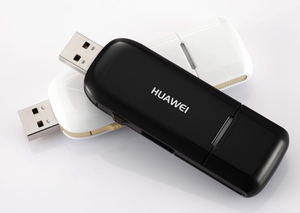
Some 100 users will be able to hook up to a public trial of StarHub’s new 21Mbps mobile broadband service, as the telco readies to launch it commercially within the next three months.
This promises, on paper, to be three times faster than the 7.2Mbps services now offered commercially by all three telcos here. While tests have been run on 14.4Mpbs services, it looks like operators here will go straight to 21Mbps this year, since newfangled HSPA+ technology is fast becoming available from network vendors like Huawei and Ericsson.
The public trial is the latest “one-up-manship” that’s been going on between StarHub and SingTel of late, as both ready for a speed race over the air. In January, StarHub said it was readying its network for a 21Mbps speed boost. Just days later, SingTel announced that it had done a live demo of a 21Mbps link at the Volvo Ocean Race stopover.
It’s not hard to understand why. Mobile broadband services are becoming increasingly popular because users can go online with them either at home, in the office or on the go. All they need to do is plug in a USB stick to their laptops. Late last year, SingTel was said to have seen the takeup of such services grow an amazing 75 per cent in one quarter.
This new broadband speed race makes for some interesting times.
On fixed line broadband, StarHub had won the race in the past couple of years, with its 100Mbps cable modem service besting the max 24Mbps ADSL (asymmetric digital subscriber line) services that SingTel can pump out over its old copper phone lines.
Hopefully, competition over the air can now bring down the rather expensive mobile broadband prices. So far, 7.2Mbps services, which I consider to be just about fast enough to surf the Net on a laptop with, are going for more than S$70 a month for SingTel and StarHub (before bundling discounts with other ‘triple play’ services), while MobileOne charges S$48 a month for it.
That’s still too expensive and there’s surely room for improvement. While we’re on that, let’s also see some improvement for “real world” speeds as well. While I can get a full 8Mbps or 12Mbps speed on my cable modem (if downloading from a site that supports it), I’m less likely to get 7.2Mbps or 21Mbps in actual use on a mobile broadband link, because of the limitations of radio frequency and number of users in the zone.
Even StarHub’s disclaimer states that “speeds represent theoretical peak speeds; actual experience may vary due to network configuration, hardware, software, local conditions and other factors.”
So don’t be junking your cable modem or even ADSL modem at home – that should remain your primary Bittorent link!
Still, faster broadband on the go is good news for mobile warriors. Let’s hope prices come down soon. To sign up for the StarHub trial, go here.





cool… i think starhub has been upgrading their tower… last few week my mobile connection wat crappy… but after that i always get full 7MBps on my huawei… LOL… this is so cool… cant wait the 21MBps heh…